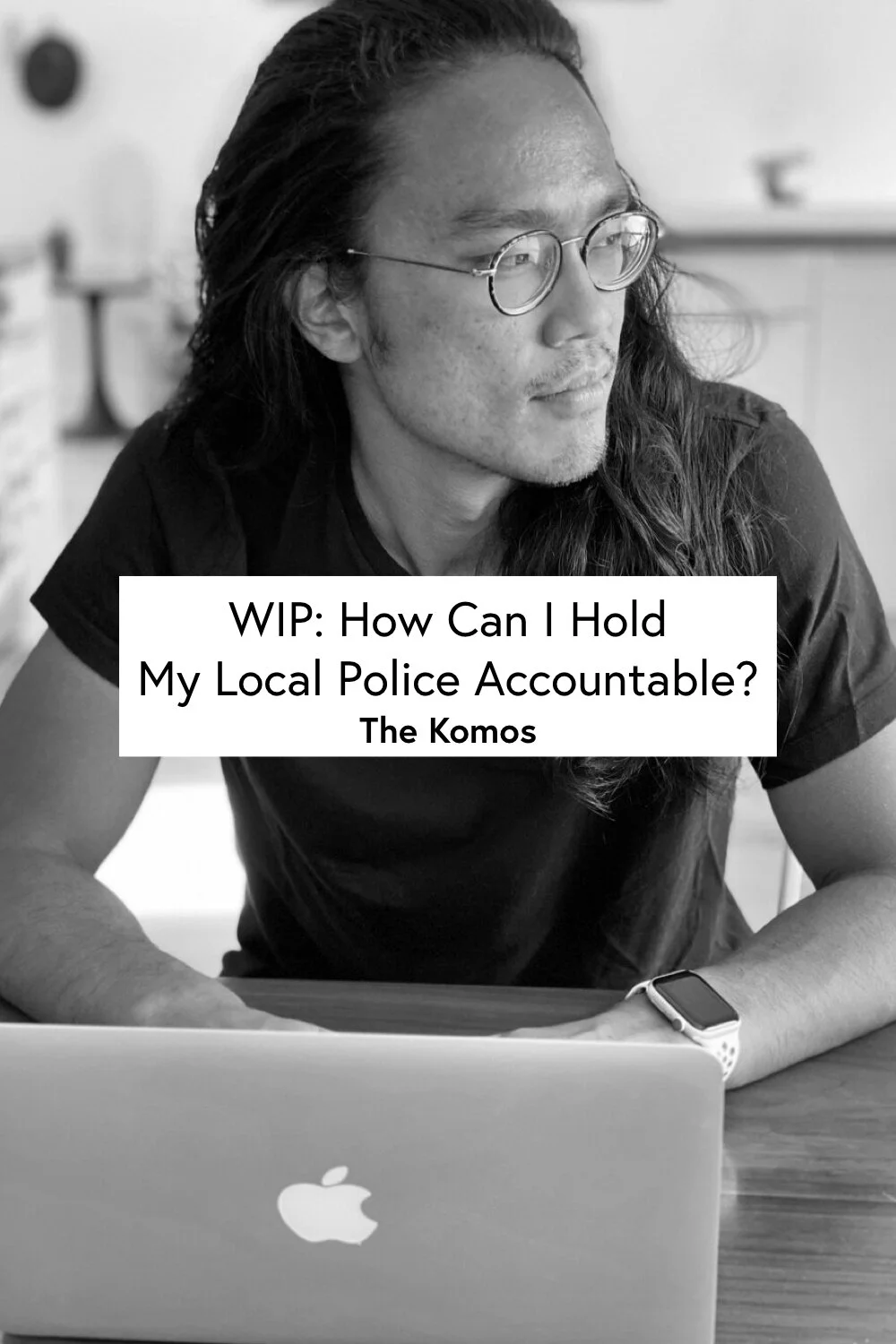WIP: How Can I Hold My Local Police Accountable?
Echoing calls to dismantle the police and ways to engage with your local PD.
This is part of an ongoing series we’re calling WIP, meaning “work in progress.” WIP posts will explore a topic that we’re committed to learning and talking about and we welcome you to join the work.
The backstory
Make a mental note and put this post in the “learning” bucket of our tagline - “living and learning as husband & husband.”
Let us be clear. Black lives matter. George Floyd was murdered. White supremacy is alive and thriving. The police as we know it must be dismantled. What does this mean exactly? That’s what we’re wanting to learn more about as the Minneapolis City Council voted to disband its police, but there is no comprehensive and executable plan for what a new public safety system looks like.
Which begs us to wonder, what are we meant to do in the meantime? If we’re wanting a community-based system of public safety, how can the community design it? What about smaller cities that don’t have the momentum metro areas have to push for reform? How can those residents advocate for change? These are all questions we’ve been spiraling around during dinner and second happy hour.
You won’t find answers here. But, we have spent the last two weeks emailing, calling and tweeting with our local police department, Roseville PD, to understand their Use of Force policies, de-escalation practices and community engagement in hopes that echoing calls for change and accountability will impact our city.
Our learnings
To offer some context, Roseville’s current population is around 37,000 people. Our Roseville PD has 51 officers which is a ratio of 1 officer to every 725 residents. We’ve learned that at any given moment, there are about 10 officers on duty. In comparison, Minneapolis has around 800 officers for their 437,000 residents (1:546 officer-resident ratio) and Saint Paul has 630 officers for their 312,000 residents (1:495 officer-resident ratio). In addition to officers, a police department can have civilian staff, administrative support and community service officers. All of these roles have an impact on a department’s culture and we as residents have a right to influence it. But how?
Police Data and Data Sharing
I was pleased to find that RPD is committed to transparent practices and the sharing of data to offer objective information. A priority of mine was to see their Use of Force data to get a better sense of how the department defines, tracks and reports their use of force.
Call to action: Go to your local PD’s website and see what data and reporting they’re sharing. Take 30 minutes to read through and think critically about the data and how they’re summarizing their findings. If you can’t find anything, tell them that’s a problem.
Filing a Formal Complaint
Filing a formal complaint is one of the most effective tools to help you hold an officer accountable. By now, you’ve probably heard of the “blue wall of silence” which gets at the police culture of officers not tattling on each other. And as we’ve seen time and time again, silence is violence and the blue wall of silence is the most deadly. So, in addition to putting pressure on departments by phone, email, social media and protest, filing a formal complaint instigates an official process by which an officer’s behavior must be reviewed by their supervisor and other superiors.
Call to action: Learn how you can file a formal complaint with your local PD - see RPD’s form - and in any instance in which you witness excessive use of force by an officer, exercise your right to file a formal complaint.
Prevent Misperceptions from Police
During discussion of use of force policy, de-escalation training and community engagement, I learned that when officers respond to a call, they are given information on the situation they are responding to before they even get there to asses it themselves. Sure, information like “COVID-positive resident” is extremely helpful. But what if a house is marked as “known narcotics user”, but the resident just recently got out of rehab? Or your neighbor calls the police because of a suspicious stranger in your home, but they didn’t know you’re hosting a foreign exchange student for the semester? We have the opportunity to self-identify and offer information to officers proactively that could prevent harmful misconceptions. We realize there is privilege that comes with thinking someone can just mark their house as “safe” and that will solve police brutality. That’s not the reality. But, the idea of proactively sharing information in an attempt to prevent dangerous misperceptions could be an element of community-based public safety practices that offers a sense of security.
Call to action: If you feel safe to, call your local PD and make sure they have accurate information on your household.
Get Involved. Make Your Voice Heard.
Research volunteer opportunities with your local PD
Attend City Council meetings
Get to know your City Council and VOTE
Save to Pinterest and share the inspo.





